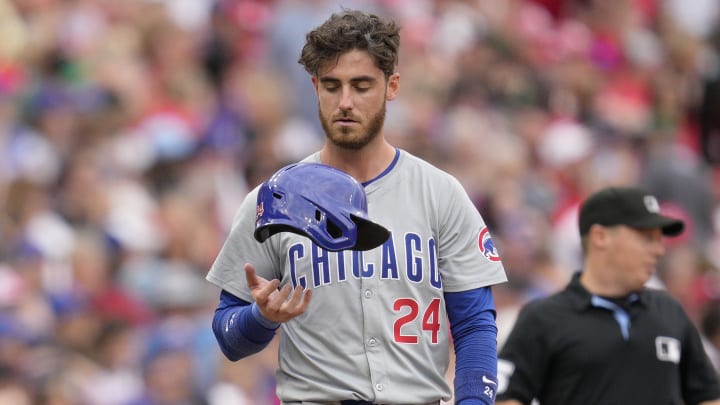For most of the offseason, rumors and speculation pointed to a reunion between the Chicago Cubs and Cody Bellinger. It appeared to be a match made in heaven as more and more teams shied away from inking the former MVP to a long-term deal. Ultimately, Bellinger re-signed with the Cubs on a three-year, $80 million deal, with opt-outs available after each of the first two seasons.
As the offseason wore on and the waiting game played out, the Cubs seemed hellbent on getting a deal done with their Comeback Player of the Year, so much so that a seeming lack of interest in other free agents that could help offensively was apparent. As it turns out, that mindset is proving to be detrimental as the team continues to look for answers at the plate.
Bellinger isn't doing poorly by any means, but he certainly isn't playing at the level he was a year ago. It's hard not to look back in hindsight and ponder what else the Cubs could have done with the $30 million they're paying him this season.
In bringing back Bellinger, the team took a pretty substantial risk, rolling the dice with Bellinger's 2023 season and not buying into batted-ball metrics that gave many teams pause about his bounce-back in free agency.
The move also somewhat blocked top Pete Crow-Armstrong's chance to develop in the majors, given that most days, he is on the bench in favor of Bellinger or Mike Tauchman in center field. At least so far, Bellinger hasn't been able to replicate his performance from a year ago, and major holes on the roster, namely in the bullpen, continue to hurt the team's postseason chances.
As much as we love Bellinger, an honest appraisal of how that money could have been spent is warranted. Teoscar Hernandez, for example, has 17 HRs and 51 RBI on a Dodgers team loaded with talent. That doesn't mean he'd have the same numbers in Chicago, but for $17 million this season (with money being deferred several years from now), the Cubs could have gotten him and two more relievers for the price of Bellinger. That financial flexibility could have made all the difference given how things have played out.
Cubs' failure to address bullpen, add star power continues to hurt
The problem with the Cubs is that hindsight, based on what "should" have been done, is a typical conversation regarding the team's front office. There's no way of predicting the future, but the Cubs haven't had a star since the Kris Bryant/Anthony Rizzo/Javier Baez trio, offensively, at least. They took a chance on Bellinger, given that it was just a three-year deal, which is fine, but considering he's not having that monster year, it's hard to foresee him opting out this winter.
Given the team has Tauchman for two more years via arbitration, Ian Happ and Seiya Suzuki for another two years and Michael Busch for the duration of his rookie contract, it's going to be hard for Crow-Armstrong or the team's other top outfield prospects to find playing time outside of an injury during these vital years of their development.
In the end, Jed Hoyer's laser focus on bringing Bellinger back, regardless of how good he was last season, has not panned out and the team is currently handcuffed, given there are no trades on the imminent horizon. In Bellinger's defense, even if he were on a 30/100 pace, the bullpen is still in very rough shape - and that will continue to be a major knock against the front office.
